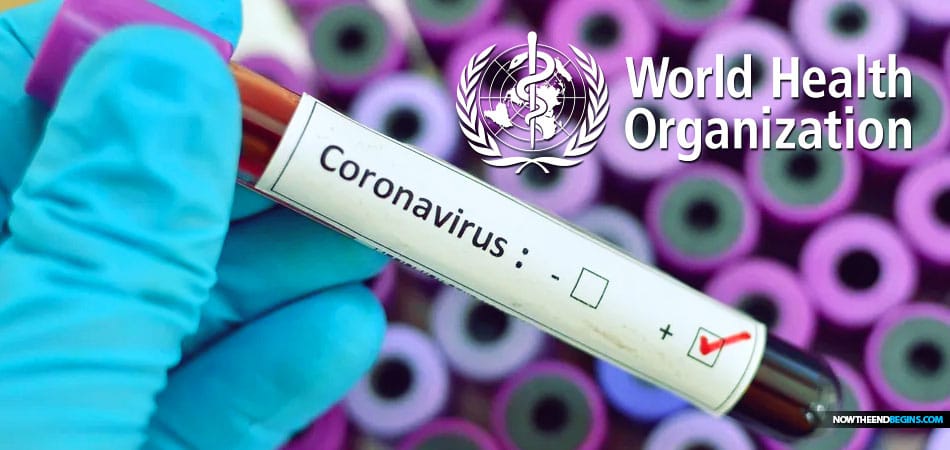
The World Health Organization said the fast-spreading Wuhan coronavirus that’s infected more than 8,200 across the world is a global health emergency — a rare designation that helps the international agency mobilize financial and political support to contain the outbreak.
The longer the Wuhan coronavirus from China escalates, the more information comes out about it. As the number of infected is nearing towards 10,000, the
World Health Organization has declared it to be a global emergency. Time to panic, or is it just another over-hyped news story like the Ebola outbreak was? Will it disappear as fast as that one did? Questions, questions, and very little real answers.
Conspiracy theories are swirling like the wind, things like Bill Gates
owning the patent on the coronavirus, which he doesn't. His charitable group helps to fund
the Pirbright Institute which
does own a patent on a strain of the coronavirus, but coronavirus is not an actual strain it's a classification which includes many strains of it. There is no patent filed for the Wuhan coronavirus that is currently causing all the trouble. So how do we view this?
I view it as the birth pangs of a sin-cursed world that is getting ready for be plunged into the greatest time of trial and tribulation it has ever seen. In the end, I really don't care if it was made in the and intentionally released for population control, or just a natural part of the myriad virus that infect this world on a daily basis and every once in a while one goes big. Does it really make a difference? I don't think it does. We need to keep the main thing the main thing, and remember that every day we encounter lost souls who,
like Kobe Bryant, are getting ready to leave this world unawares and we need to
tell them of the Saviour who can change their eternity. That's the main thing.
The World Health Organization has declared the coronavirus to be a global emergency, but lost people dying and going to Hell is much worse of an emergency.
World Health Organization declares China coronavirus that’s killed 171 a global health emergency
Since emerging less than a month ago in Wuhan, China, the coronavirus has infected more people than the 2003 SARS epidemic, which sickened roughly 8,100 people across the globe over nine months. As of Thursday, there are at least eight cases in four countries, outside of China, of human-to-human transmission of the new coronavirus.
“Over the past few weeks we have witnessed the emergence of a previously unknown pathogen that has resulted in an unprecedented outbreak,” WHO Director-General Tedros Adhanom Ghebreyesus said during a press conference at the organization’s Geneva headquarters on Thursday. “We must act together now to limit the spread.”
WHO defines a global health emergency, also known as a “public health emergency of international concern,” as an “extraordinary event” that is “serious, unusual or unexpected.”
The “continued increase in cases and the evidence of human-to-human transmission outside of China are, of course, most deeply disturbing,” Tedros said in a separate press conference on Wednesday. “Although the numbers outside China are still relatively small, they hold the potential for a much larger outbreak.”
The illness produces a range of symptoms, with about 20% of the patients developing severe illnesses, including pneumonia and respiratory failure, he said. While the WHO doesn’t enact global health emergencies lightly.
The World Health Organization has only applied the emergency designation five times since the rules were implemented in the mid-2000s. The last time WHO declared a global health emergency was in 2019 for the Ebola outbreak in eastern Congo that killed more than 2,000 people. The agency also declared global emergencies for the 2016 Zika virus, the 2009 H1N1 swine flu and the 2014 polio and Ebola outbreaks.
One of the criteria used to determine whether the coronavirus is an international health threat is whether the disease spreads locally once it arrives in new parts of the world, “and that’s a nuanced and important distinction to make,” Dr. Mike Ryan, executive director of the WHO’s health emergencies program, told reporters on a call last week.
The other main criteria is whether it’s already interfered or will likely interfere with trade and travel, he said. The WHO committee’s goal, he said, is to contain an outbreak without needlessly disrupting economic activity just by declaring a global health crisis.
Tedros said Thursday that the declaration doesn’t mean the agency has a “vote of no confidence in China.” He congratulated the Chinese government for their efforts to contain the outbreak despite the potential economic impacts.
“Our greatest concern is the potential for the virus to spread to countries with weaker health systems and which are ill-prepared to deal with it,” Tedros said.
Declaring an emergency doesn’t give the WHO extra funding or power, but it allows Tedros to make recommendations, including whether countries should impose travel or trade bans. It can also mobilize public health resources and galvanize public and political action, said Lawrence Gostin, a professor and faculty director of the O’Neill Institute for National and Global Health Law at Georgetown University.
“It signals that the world must be on the alert for a major event,” he said. Tedros said the agency doesn’t recommend trade or movement restrictions.
“There is no reason for measures that unnecessarily interfere with international travel and trade,” he said. “This is the time for facts, not fear. This is the time for science, not rumors. This is the time for solidarity, not stigma.”
Coronaviruses are a large family of viruses that usually infect animals but can sometimes evolve and spread to humans. The new virus is similar to the flu and can cause coughing, fever, breathing difficulty and pneumonia.
READ MORE
No comments:
Post a Comment